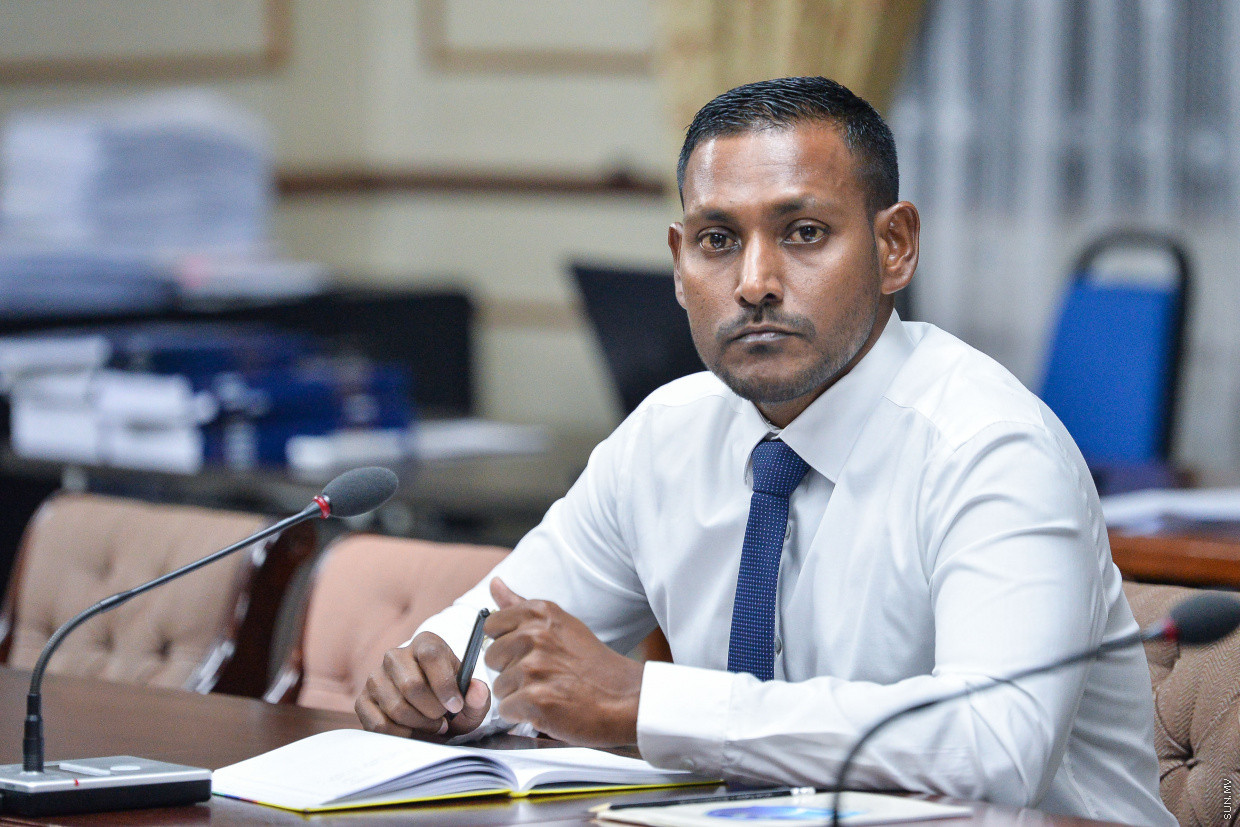Male’, Maldives – Prosecutor General of Maldives, Hussain Shameem has publicly apologized, after a public prosecutor from the Prosecutor General’s Office (PGO) revealed confidential information regarding a child rape victim.
Shameem’s apology came on Thursday, following the incident which took place during a Human Rights and Gender Committee meeting of the Parliament that was broadcasted live. The meeting was held to review an amendment to be brought to the Sexual Offenses Act, which would made the collection of evidence via rape kits and forensic analysis of the samples mandatory.
During the meeting, Public Prosecutor Fathimath Nabaha, who attended on behalf of the PGO spoke about the importance of having the consent to administer rape kits, in writing, highlighting an example of a specific case to explain her point further.
In doing so, she revealed the name of the victim, identity of the rapist, the situation of the victim, as well as the events that followed after the rape, saying that many institutions represented at the meeting were familiar with the case.
While the meeting was being broadcasted live, the MP presiding over the committee meeting, MP Jeehan Mahmood of Hinnavaru constituency made no point to stop Nabaha, or to mute the sound when the confidential information had started to be revealed.
Following the criticism faced due to this, PG Hussain Shameem issued an apology via a tweet he sent out, saying that it was a genuine mistake and that they weren’t aware that it was being broadcasted live. He also reassured that it would not happen in the future.
A genuine mistake yesterday at Majlis by PGO staff. Apologies! They weren’t aware it was broadcasting live. We’ve made arrangements to make sure this won’t repeat again.
It’s how we best we fail that define how good we become.
— Hussain Shameem (@HuShameem) October 15, 2020
As per part (a) of article 59 of the Sexual Offenses Act of Maldives (Act no 17/2014), it is not permitted to reveal any information that may give a hint as to the identity of the victim, in reporting or publishing reports on investigation and trials relating to an offence of rape, sexual injury or sexual assault.
Such information related to child victims are also protected under the Child Rights Protection Act, which prohibits the release of the name, address, place of education, or any other personal information which may directly or indirectly lead to the identification children who victims of crimes of entitled to state care.





